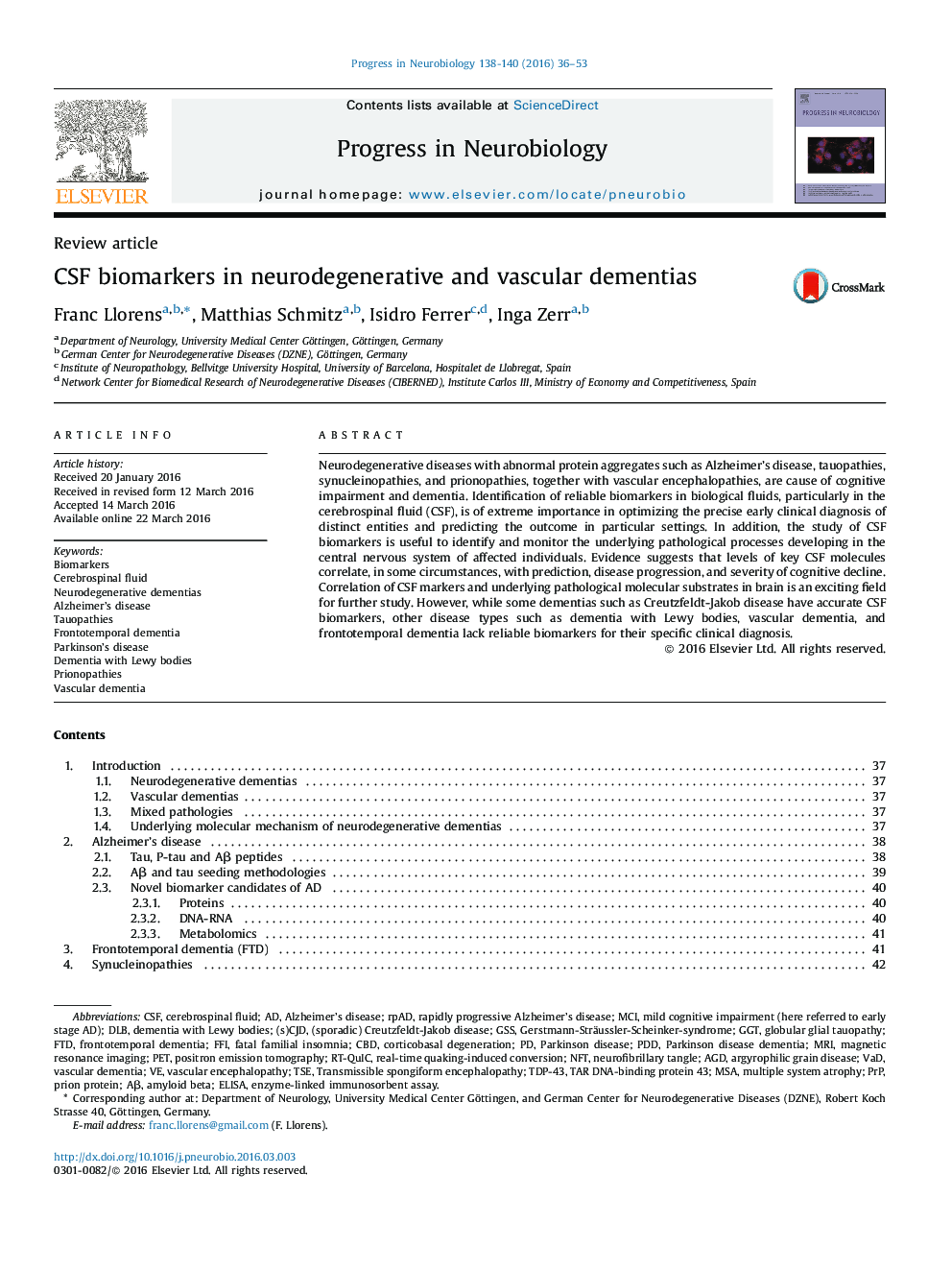| Article ID | Journal | Published Year | Pages | File Type |
|---|---|---|---|---|
| 4353229 | Progress in Neurobiology | 2016 | 18 Pages |
•CSF analysis is used to diagnose a wide variety of neurodegenerative disorders.•CSF tests provide insights into understanding the pathology related to dementia.•Ongoing research identifies new CSF biomarkers of clinical relevance.•Alterations in patterns of proteins, metabolites, DNA/RNA and seeding techniques are explored.•Robust and specific biomarkers for disease prognosis are required.
Neurodegenerative diseases with abnormal protein aggregates such as Alzheimer’s disease, tauopathies, synucleinopathies, and prionopathies, together with vascular encephalopathies, are cause of cognitive impairment and dementia. Identification of reliable biomarkers in biological fluids, particularly in the cerebrospinal fluid (CSF), is of extreme importance in optimizing the precise early clinical diagnosis of distinct entities and predicting the outcome in particular settings. In addition, the study of CSF biomarkers is useful to identify and monitor the underlying pathological processes developing in the central nervous system of affected individuals. Evidence suggests that levels of key CSF molecules correlate, in some circumstances, with prediction, disease progression, and severity of cognitive decline. Correlation of CSF markers and underlying pathological molecular substrates in brain is an exciting field for further study. However, while some dementias such as Creutzfeldt-Jakob disease have accurate CSF biomarkers, other disease types such as dementia with Lewy bodies, vascular dementia, and frontotemporal dementia lack reliable biomarkers for their specific clinical diagnosis.
